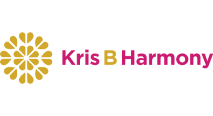
Kris B Harmony reinforces the importance of ongoing oversight of all nursing documentation to ensure it supports the rationale for skilled coverage. The following information should be included in all admission notes:
- Time and date of admission
- Mode of Transportation, assist level and number of assist with transfers and bed mobility
- Hospital stay dates
- ADL assist provided (Bed mobility, Eating, Transfer, Toilet)
- Location prior to admission
- Age, primary diagnosis, other pertinent medical history
- Prior level of functioning and if possible, discharge diagnoses
- Daily skilled needs
Example Admission Nursing Narrative
“Patient was admitted for skilled care on 9.18.20 at 3:00 p.m. after a hospital stay from 9.5.20 to 9.18.20. Patient transported via ambulance requiring 2-person staff assist with transfer from the stretcher and 2-person staff assist for positioning on the bed. Primary diagnosis is s/p left TKR performed on 9.5.20. Medical history includes IDDM, HTN, and CAD. Prior to hospitalization, patient lived with his wife and ambulated independently with a cane. Patient plans to return home. Patient self-administered his medication daily. Patient requires the daily skills, knowledge, and judgement of a nurse to ensure medical safety and promote recovery. Patient requires daily skilled observations and assessments of post operative complications related to knee replacement and risks of medical complications. Patient currently requires assist of 2 for toileting using bedside commode. Surgical incision on left knee is clean, dry, staples in place. Patient eats independently with set up. Daily skilled observation and assessment of vital signs, monitoring for pain and response to medication, daily skilled assessment of wound, drainage and treatment, effects of immobility, pulmonary assessment, observation for signs and symptoms of infection, hypo or hyperglycemia, embolism and thrombophlebitis. Upon completion of the interdisciplinary team assessment, a care plan will be devised outlining the patient's care needs, goals, and discharge plan."
There are 4 categories of skilled nursing care:
- Inherent Complexity:
Direct skilled nursing services that due to their inherent complexity may only be performed by a licensed nurse. (I.V. medications, I.V. fluids, ventilation, tracheostomy, etc.) - Skilled Observation and Assessment:
Indicated when there is a reasonable probability or possibility for complication or the potential for further acute episodes. - Management and Evaluation of a Care Plan:
Services that require the involvement of skilled nursing to meet the resident’s medical needs, promote recovery, and ensure medical safety. This area may include the sum of unskilled services. - Teaching and Training:
Activities which require skilled nursing or skilled rehabilitation personnel to teach a patient and/or family member how to manage the patient’s treatment regimen.(Stump wrapping, colostomy care, self-injection insulin, etc.)
.jpg?width=1514&height=594&name=Artboard%201@4x-100%20(1).jpg)


.png?width=208&name=Logo-KrisB%20(1).png)